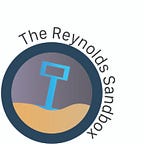Old, Older, and Oldest: Where is the Youth in Our Elections?
The #NevadaVote election reporting team of Chris Darche, Patrick McNabb, and Troy Welling sets out to find out exactly why there are so many older candidates running in the 2022 midterms with so many incumbents already in government and what young voters could do to change that.
On a recent sunny October afternoon, a table for the UNR chapter of Turning Point USA, which describes itself as an American conservative nonprofit organization, was eerily quiet. The same could be said for the table for the Young Democrats of UNR (above). Both tables favored opposing candidates with their fliers marketed toward younger people.
The YDUNR representative didn’t want his photo taken, while the group didn’t respond to repeated messages to be interviewed.
The average age of U.S. citizens is about 39 years old. The average age of representatives in the current U.S. Congress is about 58 years old. This almost 20-year gap can be detrimental to lawmaking in the United States.
Candidates and incumbents are reaching ages upwards of 90 years old and are still retaining their spots in our governments. Along with this, it is also older people who vote the most. Statistics from the 2018 midterm election show that only 33% of citizens from 18 to 29 cast a ballot, compared to the 56% of ages 45 to 59 and the 66% of voters 60 and older.
Fred Lokken (above), a political science professor at Truckee Meadows Community College, said there’s a habit about voting. The older that people get, the more likely they are to vote.
“You don’t feel really invested in the system at that age (21),” he said. “You’ve been taken care of and you’re probably not working a big job where you are paying a lot of taxes. You’re less aware of crime, the role police play, the roads, and you don’t really see the value of the government and voting until you have that investment in life.”
The good news for young voters is that there aren’t massive thresholds stopping younger candidates from partaking in elections, as a voter or candidate.
There’s plenty of information on how to register to vote, including for college students who might not be aware of what their official address is.
It is hard for young voters to conceptualize exactly what they are voting for, when they haven’t experienced many of the things that are affected by their votes.
Lokken explained that Nevada is even worse at young voter participation than other states around the country.
“In 2016, Nevada had been identified as the state with the smallest number of young voters who registered for the election,” he said. “Only 5% of young eligible voters cast their vote for the 2016 election and that made Nevada the worst in the country.”
Nevada also has one of the most complex ballots in the country, which doesn’t help. “We vote for everything in Nevada,” Lokken said. “We vote for judges, we vote for all of our key county positions, city positions, etc.”
Voting for multiple positions, added to even more complex ballot questions, can get extremely overwhelming for new voters and young voters alike.
While doing searches on the internet, it’s quite difficult to find any reliable voter guides in Nevada and it’s extremely hard to get information on the ample amount of candidates. Lokken believes Nevada needs to find ways to simplify the ballot and shrink the campaign period.
“People just don’t pay attention to what they’re (incumbents) doing in office,” said Amber Kleinke, a member of Turning Point at UNR, a rare student political activist who was willing to be interviewed.
“They see the name and the party, R or D next to their name, and they just vote because they are republican or democrat instead of voting or paying attention to what they do in office,” Kleinke said.
Turning Point is a social club that advocates for the right to vote and they emphasize how important young voters are to the electoral process. The group also promotes “the principles of freedom, free markets, and limited government,” and has often favored Donald Trump and MAGA type candidates.
Running for office is also mostly the domain of the old, even though the age to run for Senate is only thirty years old and the House of Representatives is even lower, for which you only need to be 25. Campaign costs are prohibitive for many though.
Over at the so-called Nevada Democratic Victory offices on 4th street, Sarah Mahler, chairwoman for the Democratic Party of Washoe Country, was coordinating a strategy session in the run-up to the start of early voting.
Taking a few minutes to do an interview, she said she could understand why it’s difficult for young candidates to run.
“The cost is definitely preventing youth participation in many elections,” Mahler said. “There are some campaigns that can cost you upwards of a million dollars. Obviously, when you’re young, you don’t typically have access to all that money unless you’re born into it,” she said.
“It’s been pretty obvious that most of the people who are running for office are typical old white men who have had advantages to make the money it takes to run a campaign,” Mahler said. “This prevents people of color, women, and other marginalized groups from running for office because they were not able to collect that wealth.”
Mahler does see slow and steady progress in opening up races.
“I would say that the easiest way to get more young people in office, is to get young people politically involved,” she said. “Preferably, the sooner the better.”
